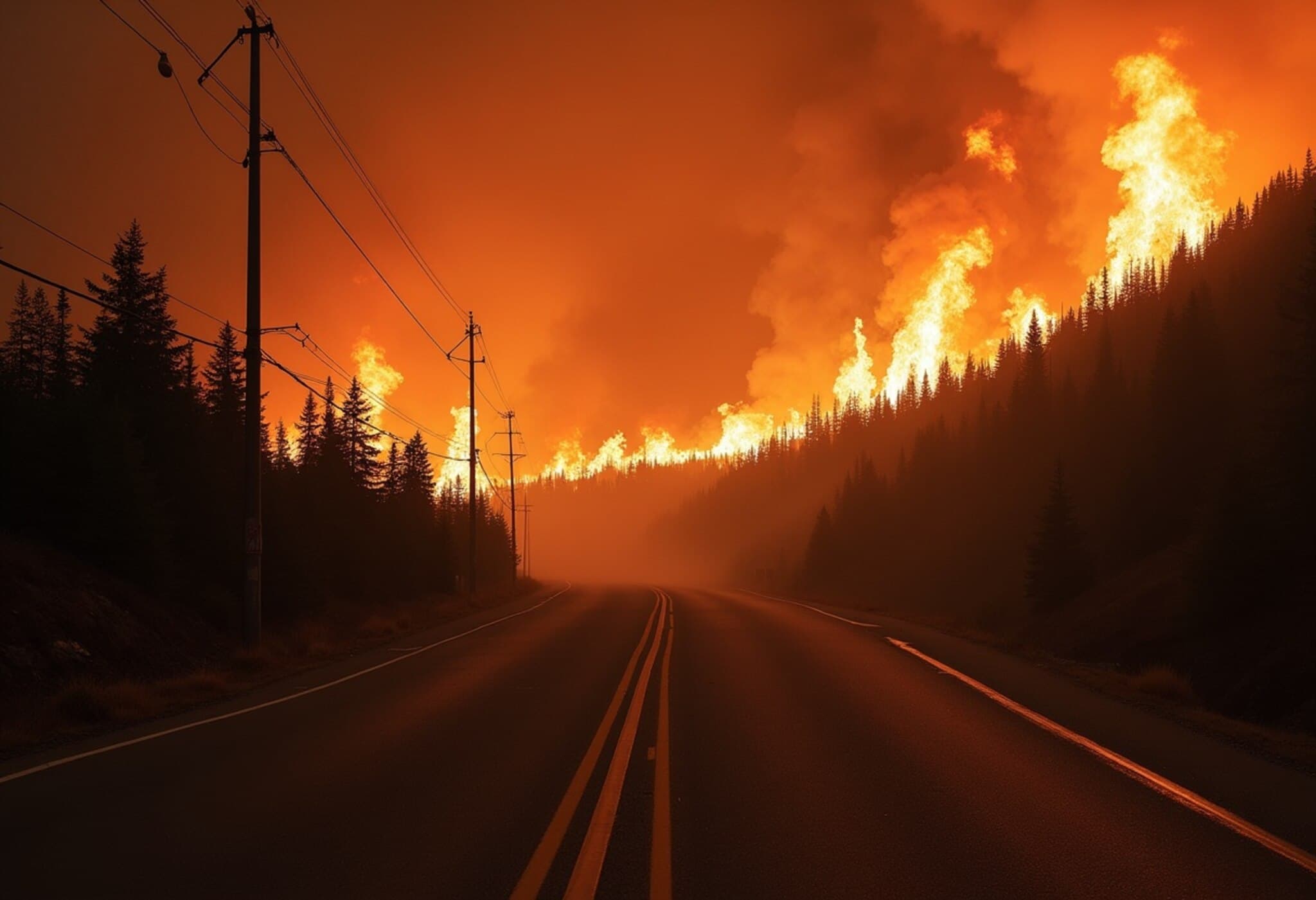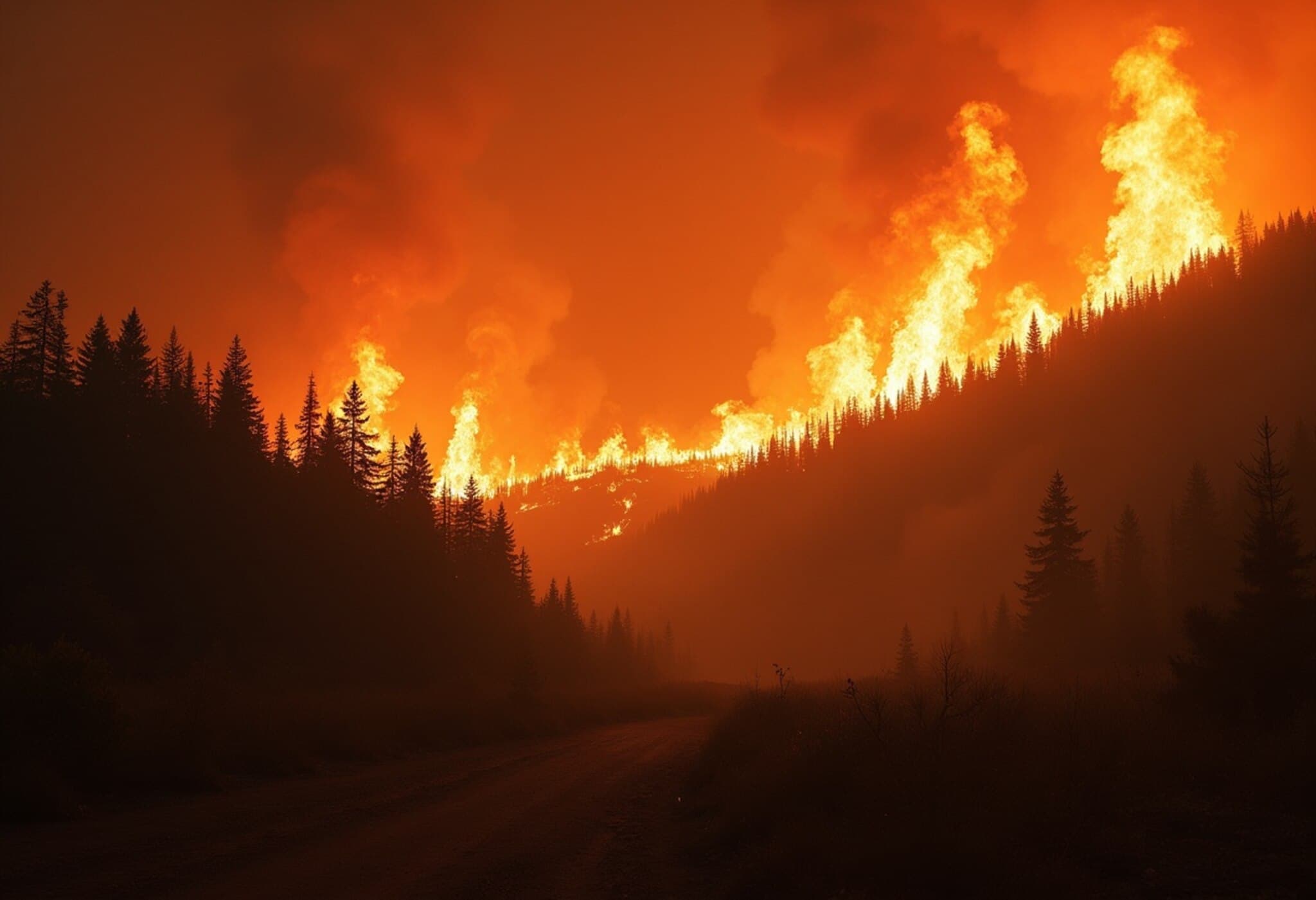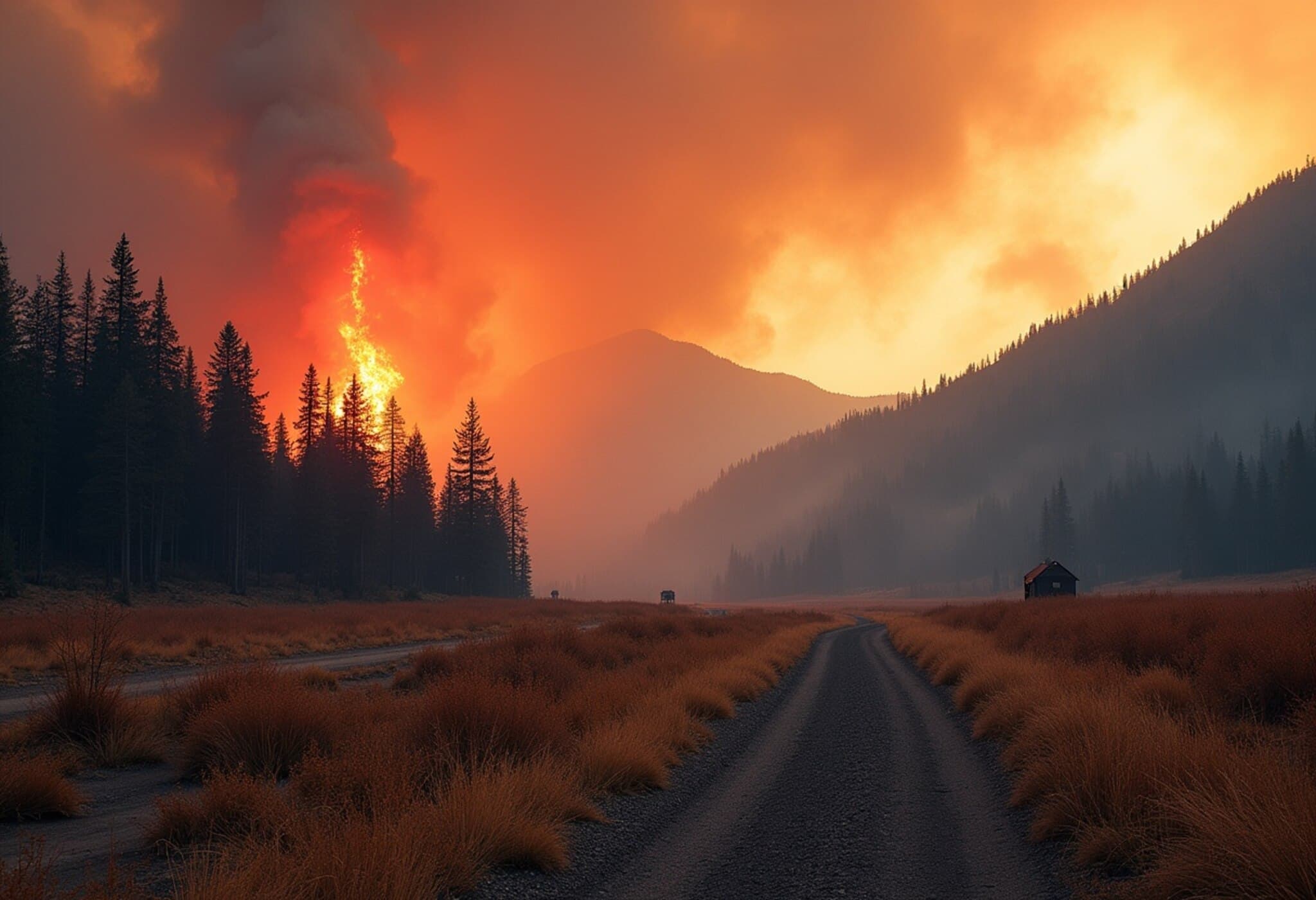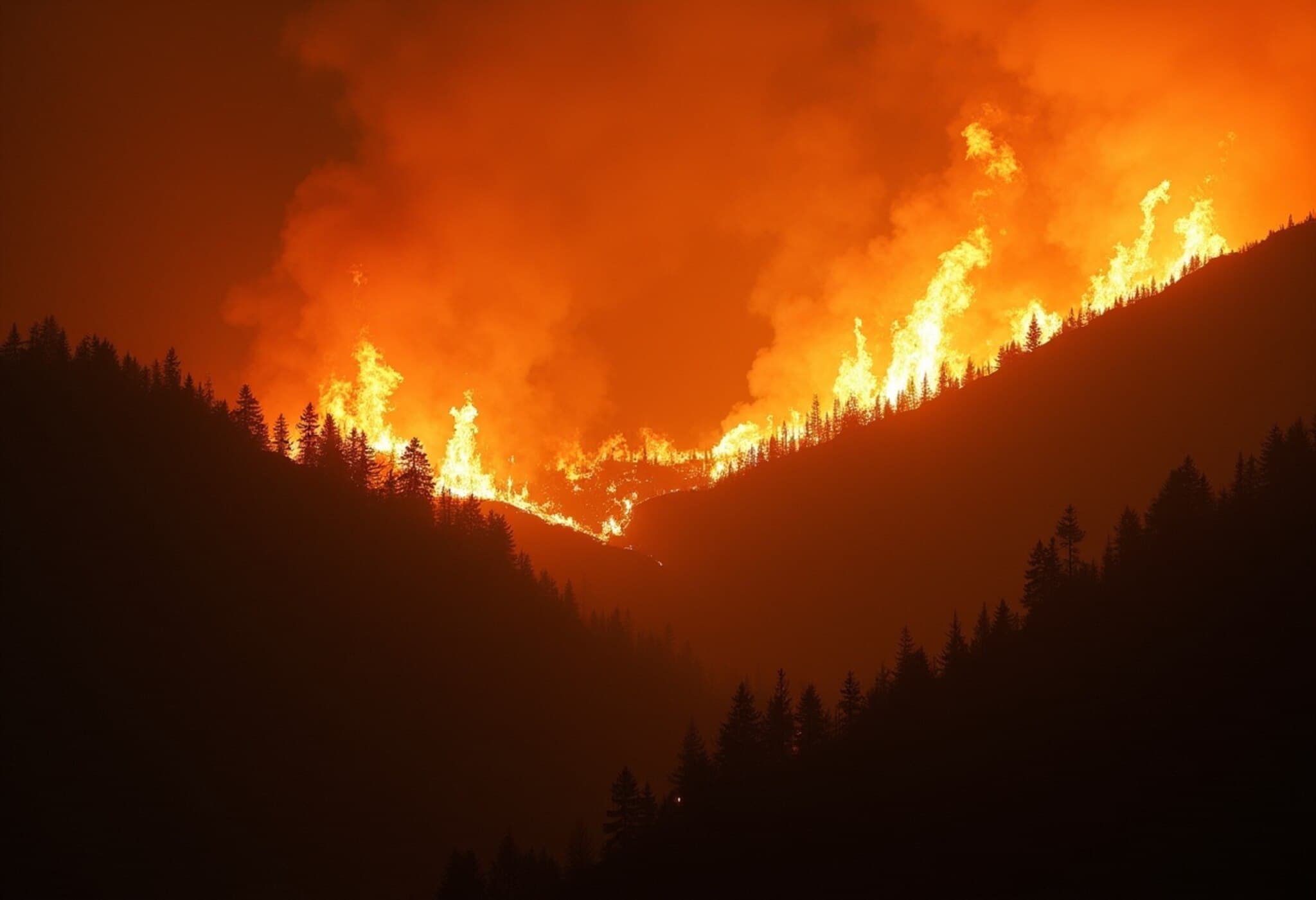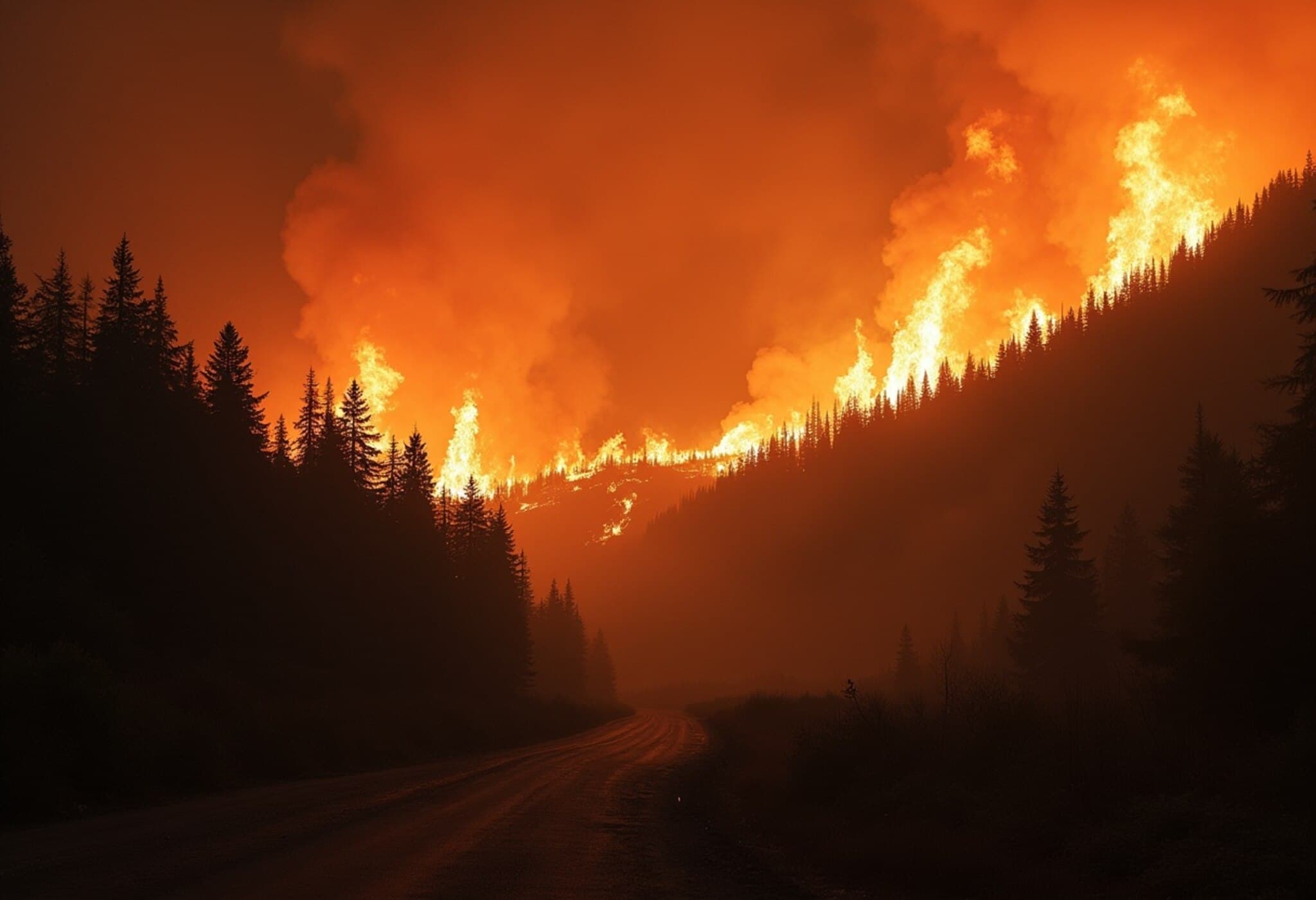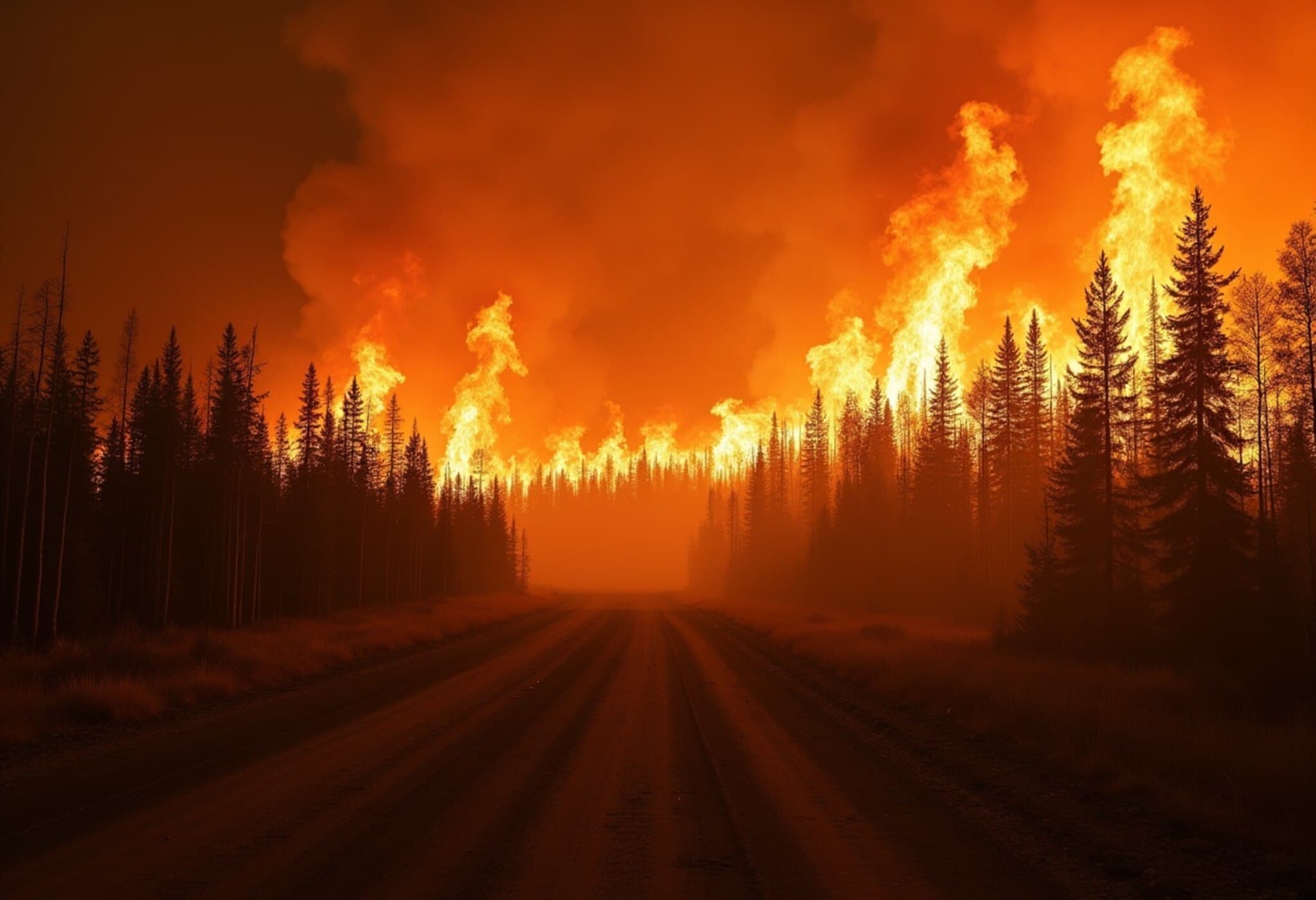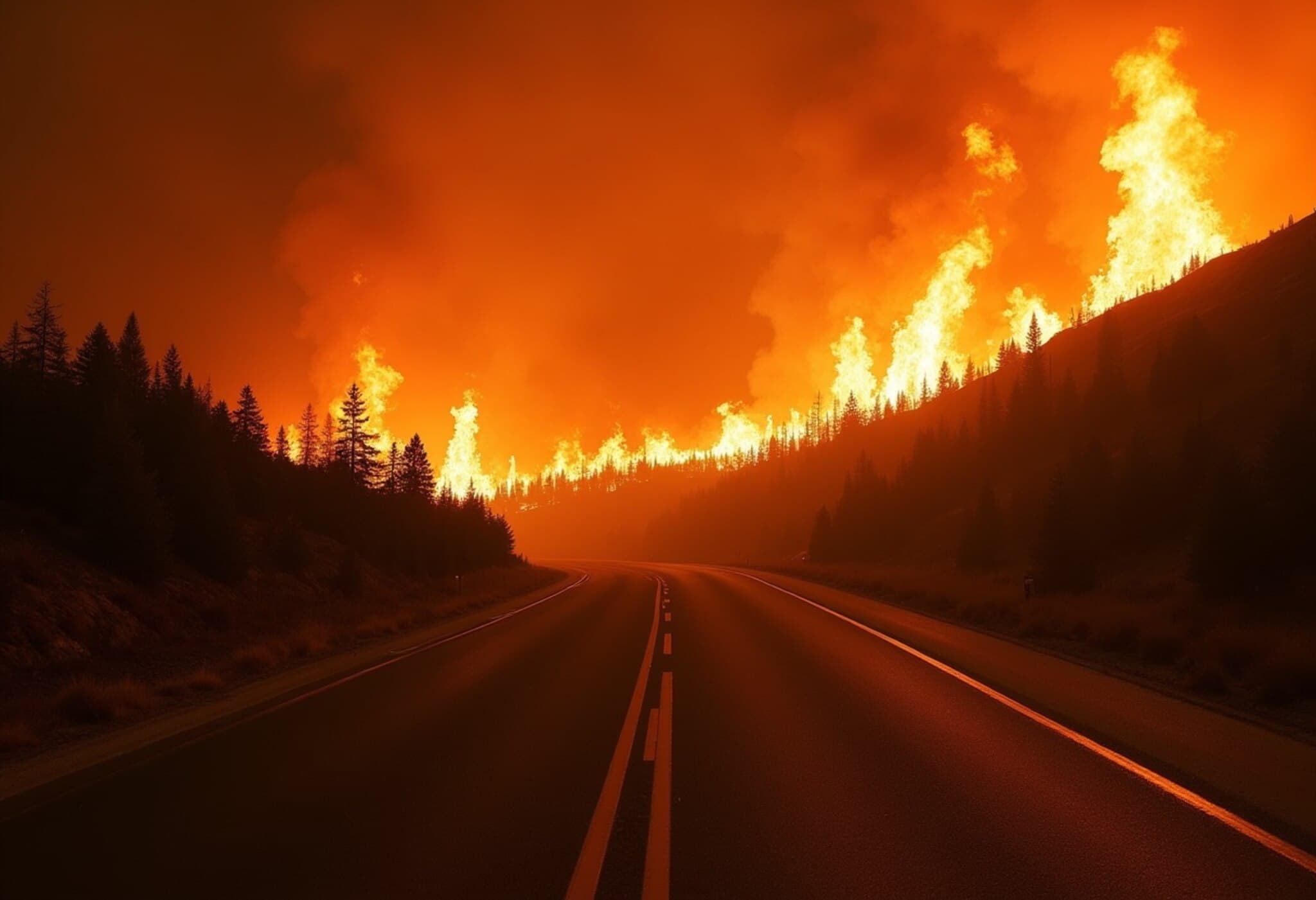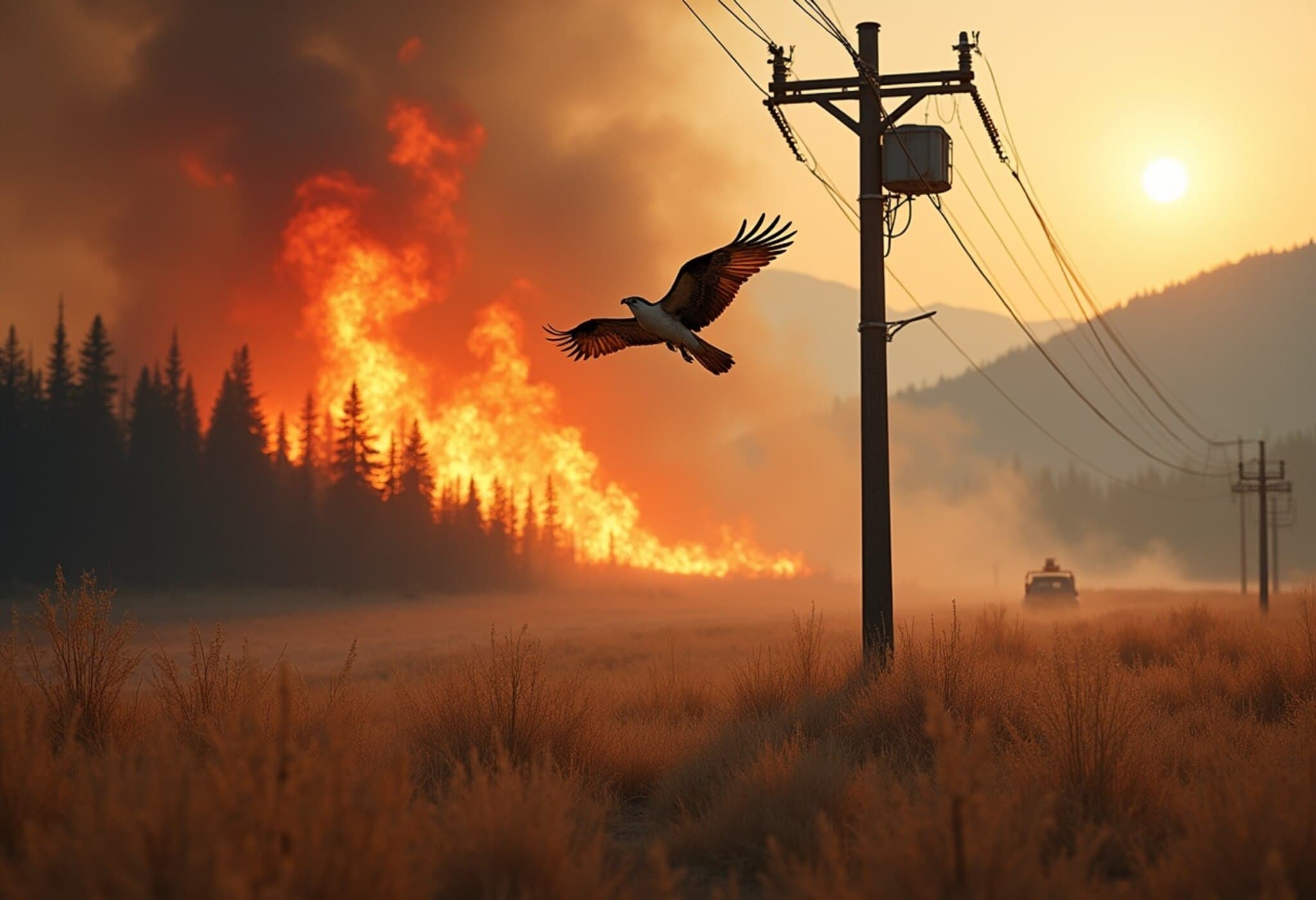State of Emergency Declared in Squamish as Wildfires Intensify
Residents of Squamish, a town just 64 kilometres north of Vancouver, are bracing for possible evacuation as wildfires rampage through British Columbia. With Vancouver's metropolitan area home to over three million people, the situation has drawn widespread concern.
British Columbia’s emergency management authorities have urged locals in and around Squamish to stay alert and be prepared to leave at a moment’s notice. The declaration of a state of emergency underscores the threat posed by these rapidly advancing fires that have caught many off guard.
Local Community Reacts Amid Growing Anxiety
For young residents like 19-year-old skateboard coach Max Whittenburg, the wildfires are a startling first experience. “I’ve never seen a fire this close to Squamish,” Max shared. “We’ve packed what we can already, just in case we have to evacuate quickly.”
Similarly, Luke Procter, also 19, described a flurry of preparations at home, including readying a trailer for swift departure. “We’re staying up late, waking early, making sure everything is set to go,” he said.
Changing Fire Patterns Worry Experts
Researchers note that fires creeping near coastal regions, such as Squamish, are notably concerning since these areas traditionally saw fewer blazes. Marc-Andre Parisien, a Canadian Forest Service researcher, highlighted that while coastal fires tend to be less intense than those inland, their growing frequency signals a troubling shift in wildfire behavior.
Canada Faces Another Record-Breaking Fire Season
This year’s wildfire activity is already surpassing recent averages, with more than 220 active fires nationwide on the rise, about half of which remain uncontrolled. To date, flames have engulfed over 3.3 million hectares (12,700 square miles)—an expanse comparable to the entire country of Belgium.
Alarmingly, smoke from Canadian fires has even drifted across the Atlantic, reaching European skies.
Widespread Impact Across Provinces
Central provinces like Saskatchewan and Manitoba have endured early fire outbreaks severe enough to prompt states of emergency in late May. Saskatchewan’s Premier described recent weeks as “vicious,” yet offered hope as some evacuees prepare to return home.
Meanwhile, mega wildfires continue to burn across western Alberta, British Columbia, and northern Ontario, Canada’s most populous province.
Climate Change Intensifies Fire Risks
Experts link the escalating fire seasons to climate change, pointing out that Canada is warming at roughly twice the global average rate. This accelerated warming results in diminished snowpacks, shorter winters, and earlier arrival of summer conditions conducive to wildfires.
Environment Canada warns of hotter-than-normal temperatures expected throughout much of the country this summer, combined with dry springs, which significantly elevate wildfire risks in coming months.
Frequent Fire Ignitions Complicate Response
Canada detects over a dozen new fires daily, with causes varying from accidental human activity to natural lightning strikes. This relentless pace challenges firefighting efforts and adds urgency to evacuation and prevention strategies.
Preparedness Remains Crucial
As the wildfire threat looms, communities like Squamish exemplify the precarious balance between vigilance and resilience. With climate trends showing no signs of slowing, readiness to respond at a moment's notice becomes the new normal for many Canadians.

